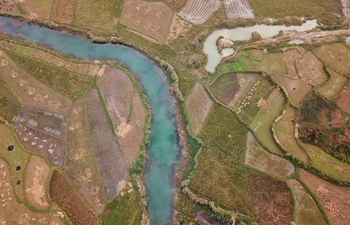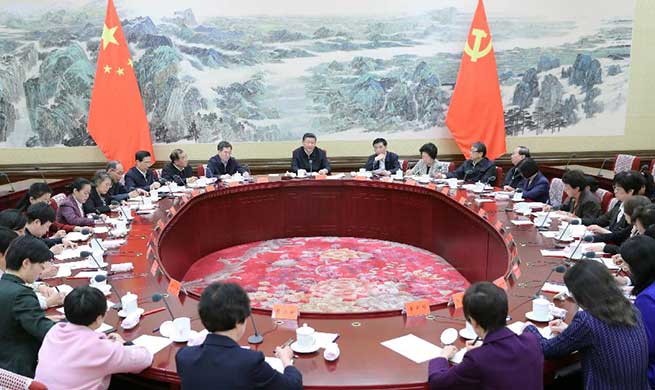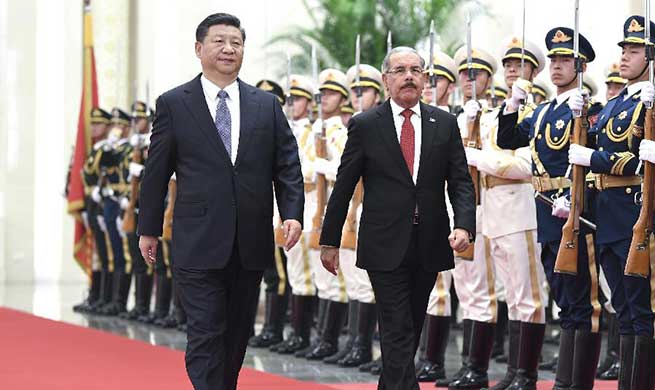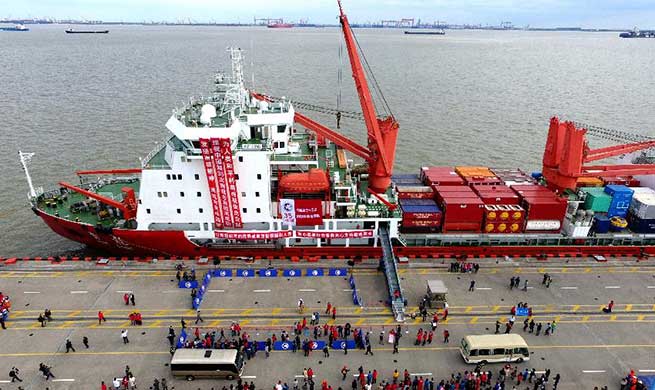By Christopher Guly
OTTAWA, Nov. 2 (Xinhua) -- As Canada prepares to roll out a national carbon-pricing system next year, the country's environment and climate change minister highlighted China's pricing system on greenhouse gas emissions on Friday as she concluded her visit to China.
"China has been and continues to be an essential partner in the fight against climate change as a large emitter and producer, but also with its commitment to reduce emissions and its ability to scale like no other country," Catherine McKenna told Canadian journalists in a teleconference from Beijing.
"It is essential that we engage with China, and China is committed to climate action."
During her Chinese visit, McKenna signed a memorandum of understanding on climate-change cooperation with Chinese Ecology and Environment Minister Li Ganjie. The pact builds on the Canada-China Joint Statement on Climate Change issued by Canadian Prime Minister Justin Trudeau and Chinese Premier Li Keqiang during Trudeau's visit to China last December.
"Both of our countries understand that the environment is directly linked to our economies," said McKenna. "It impacts on businesses, farmers, fishers, tourism and people's lives."
She credited China with strictly regulating sulphur-dioxide emissions, engaging in mass reforestation projects, investing in clean technologies and "protecting more of its nature."
McKenna visited China's new and first giant panda national park, which covers more than 27,000 square kilometres, straddles three Chinese provinces (Sichuan, Shaanxi and Gansu) and, as she noted, is home to a unique ecosystem that also includes golden snub-nosed monkeys.
The minister, who is also responsible for Parks Canada, said that Canada would assist China in developing a national park system, and referred to a twinning agreement recently reached between Giant Panda National Park and Canada's Jasper and Elk Island national parks, all of which serve "an important role in habitat protection and the conservation of iconic species," according to the Canadian government.
For instance, in the late 19th century, plains bison were on the brink of extinction, but as a result of Canadian conservation efforts, the species is returning to the wild. In the latter part of the last century, giant pandas also faced extinction but their population is recovering due to Chinese conservation efforts.
On climate change, McKenna said that she and her Chinese counterpart discussed how Canada and China could collaborate on reducing emissions, phasing out coal, combatting pollution and protecting nature. The conversation resulted in an agreement on pricing pollution, electric vehicles and clean technology.
The Canadian environment minister said that China has yet to join the 28-nation Powering Past Coal Alliance that is promoting the global phase-out of coal power. "China knows that it needs to take action to tackle pollution from coal," said McKenna. "It is taking action, but it has to do more. Coal constitutes a large part of its electricity system."
She added that China is making "historic investments in renewables," such as through the production and use of electric vehicles, of which the country accounts for two-thirds of the three million vehicles worldwide.
"Like Canada, there's more work to do, and we have to make sure we're working together," McKenna said.












